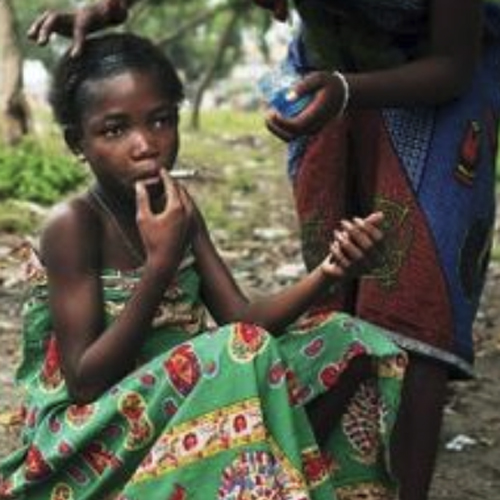Street children of Accra
| Year | Street children in Accra | Source |
| 1990 | 4,000 | Legon University |
| 1996 | 10,400 | Catholic Action for Street Children (CAS) |
| 2003 | 15,300 | CAS |
| 2006 | 21,400 | CAS |
| 2009 | 35,000 | DSW |
| 2017 | 90,000 |
Around 90,000 children live or work on the streets of the Greater Accra Region; many are exploited and sexually abused. The anemia is a strong problem among the little ones.
These children live and work mainly on the streets during the day and sleep on the streets at night. Sleeping on the streets means sleeping outdoors, on a piece of thin cardboard, exposed to rain, abandonment and violence.
To try to “escape” from their sad reality, children use drugs and often sleep in groups to protect each other.
Three different types of children can be found on the streets:
- Children who have migrated from rural areas of Ghana, due to a lack of opportunities or fleeing from slavery, to which they are sometimes subjected in the mines, in the countryside and fishing in the great Lake Volta. On some occasions, these children have migrated from neighboring countries fleeing violence and poverty.
- Children born in the streets. (Second and third generation of children). They are children of young people who have been living on the streets for several years. These children have known nothing but abuse, drug addiction, violence and prostitution.
- Urban poor children. Children from poor families who are on the streets who help support their family. They are usually forced by adults to look for their lives and get money to survive.The drama of all these children is terrible and unimaginable, because life on the streets is always surrounded by violent gangs, drug addiction, all kinds of sexual abuse and, in some cases, robberies and thefts to survive.
These street children are often selling products at traffic lights, wandering through the cities or performing dangerous jobs for their health and integrity.They are normal children who like to play and feel love and protection, but do not have the opportunity to lead a normal life, or study, because all they know are poverty, violence, lack of love and abuse.


We propose two actions to help with this drama of street children in Accra:
- Basic education -not formal- and skills training (cooking, hairdressing, sewing, painting, making wood crafts, etc.) For street children in Accra to recover their dignity, providing them with basic health care, to detoxify themselves and cure their diseases.
- Education of children in the rural area of Koforidua, in the outskirts of Accra, to prevent migration to the big city.



